Creation in the Internet Era (Part 2): Works lack internal confrontation, and are more about pleasing to the outside world
In the following chapters, we want to continue to develop some loose questions and reflections - the influence of media on creation itself in the Internet age. This tweet is the second half of the article, click here to jump to the previous part.
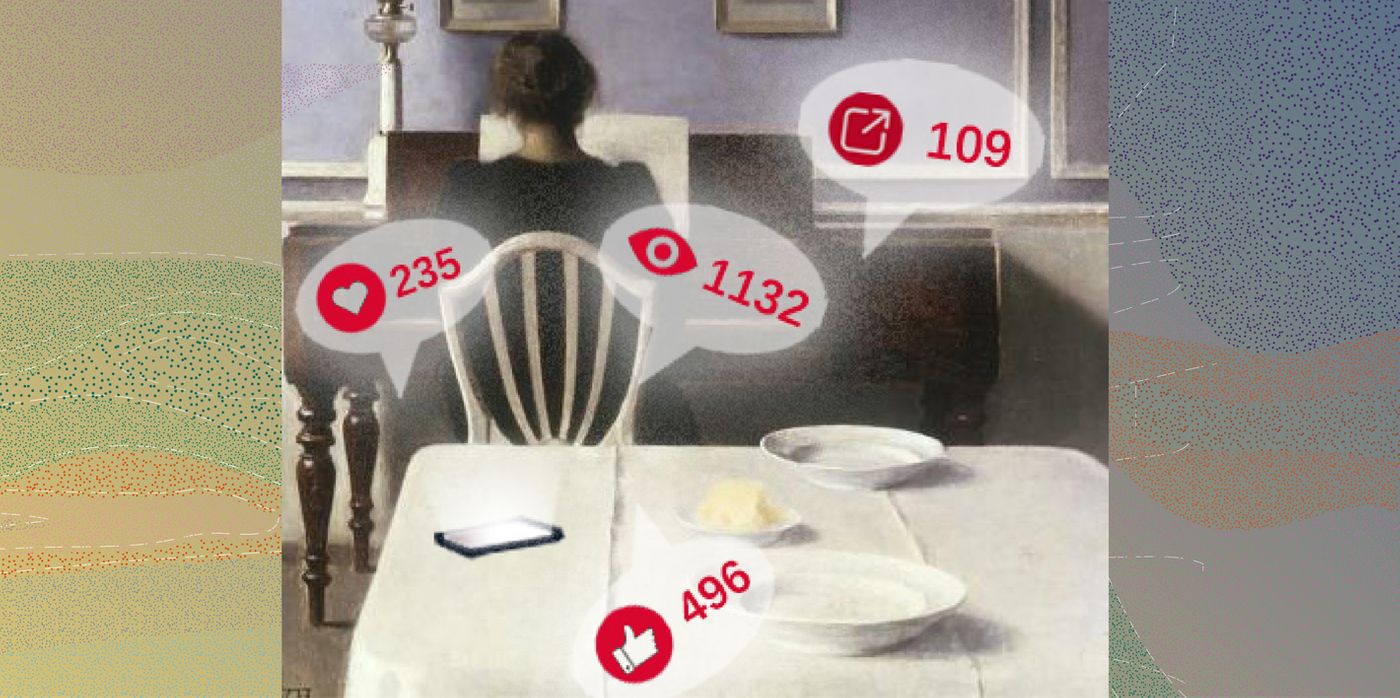
06 "Self-control" of creators in the cyber world
The concept of "cybernetics" shows us how the medium or the environment itself has a constant influence on the input side .
Cyberpunk, cyberworld, cyborg... The well-known root of "cyber-" comes from the word "cybernetics". It is widely believed that the term was coined in 1948 by Norbert Wiener, a professor of applied mathematics at the Massachusetts Institute of Technology.
When we go back, we can fully understand the meaning of the word. The root of the word "Cybernetics" is the Greek word "kybernetes", which means "man at the helm" . We can imagine such a scene: in the vast sea, the boat sails on the waves, and the helmsman controls the sailing of the boat. He adjusted the direction of advance according to his own will, and while advancing, the waves kept beating on the ship, and these environmental factors continued to affect his judgment on the direction of the next step.
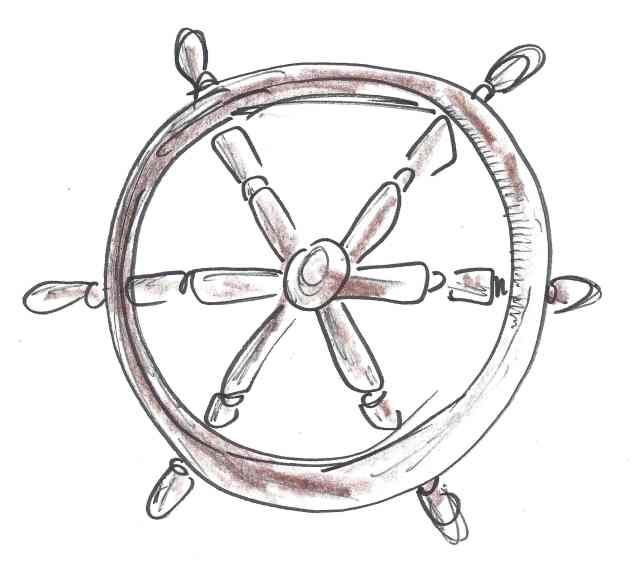
This scenario roughly paints the heart of cybernetics: self-control based on system feedback . When we put it in the communication system, we can see, for example - if the video broadcast volume uploaded to station B is low, the barrage is small, and the response is very small, the Up master will find a way to increase the broadcast volume, he can Adjust the content of your topic selection, the way of editing, or cut off a column that is not very popular. After that, upload a new video content, observe the changes in the response, and continue to make adjustments. In this "cybernetics" system, it is not the market, government or leaders who directly issue orders to tell the creators what to do and what not to do, but the creators continue to "input-get feedback-adjust-re-input" The iterative process exerts "self-control" for itself.
Suppose the Up master has completely deviated from his original wishes from topic selection to style two years after he settled in Station B, this change in the creative process is not directly forced, but is affected by the "cyber world". Driven by their own initiative, it seems to be completely "autonomous" and "voluntary".
In these two articles, we also cut into "creation in the Internet age" from this perspective. In actual situations, creators are obviously subject to the direct control and jurisdiction of Party A, the Planning Bureau, or editors-in-chief of publishing houses, business leaders, and government documents, but here we discuss more within the topic boundary of the system of "cybernetics", How creators are constantly self-adjusted by the influence of dataism, and reflect on the impact of this process on creative motivation and content of works.
07 There is no inner confrontation and struggle in the works
In Plato's allegory of the cave, all one can perceive is a projection of eternity; if one wants to approach the truth, one needs to detach from the world and others. But eternity cannot be "put into words," because "when a thinker sits down to write his thoughts, his first consideration is not eternity, but the imprint of eternity."
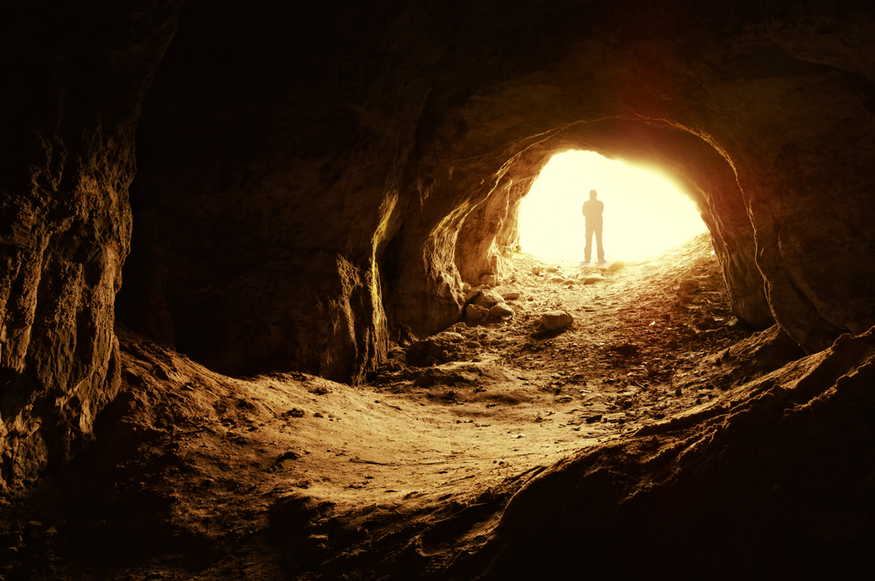
Within the framework of the philosophy of ancient Greek essentialism, the act of creation always portends a kind of regret. For eternity can only be approached by people, not finally reached.
If Borges' "The Ring of Ruins" can be read as the process of putting imagination into practice in creation, then Kafka's short story "The Hungry Artist" is more like showing the artist's inner struggle of pain. The French poet Paul Valerie also said: "A poem is never finished, only abandoned." Some later generations think that his sentence means every poem Continuity with the next poem, but we are more inclined to read it like this: the poet writes a poem, always trying to bring it close to that perfect perfection, but this is always only close, not really. . So when is a poem finished? It's never when it really hits its peak of perfection (because that never happens), it's just when the creator abandons it - "Well, I tried, that's all, it's the most I can do It's over." At this time, it was considered that a poem had been written for the time being. Truly great work is always the result of such endless effort, struggle, and compromise. The difficulty of this creation is also very real to the architect.
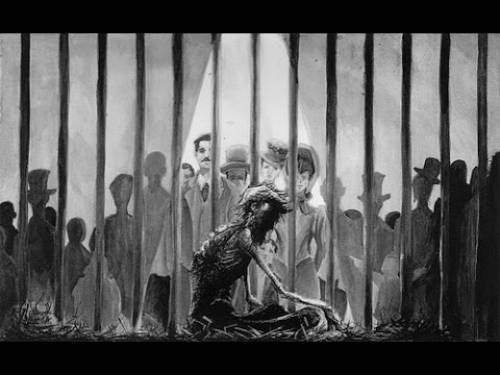
Another struggle is based on whether to create for yourself or to create for others.
If the intention of creation is understood as a number line composed of two ends of "to understand" and "to be understood", then Arendt and Borges are undoubtedly on the side of "to understand". Here, we do not want to advocate that all today's Internet creators should put themselves on the side of "understanding" without hesitation, but want to point out that there is at least one "understanding" in creation. The tension and dynamic balance between "understood" and "understood" - these two writers say that they write purely "for understanding", but in fact, no creator does not imagine a group of potential audiences from time to time in the creation, To fantasize about the work being written being accepted, to fantasize about being in a state of connection and resonance with others. It's all part of being creative - don't be too flattering, but don't be too selfish either.
But unfortunately, this dynamic equilibrium process is broken. Under the shroud of dataism, the weight of the work being "understood" is infinitely prioritized. Dataism has become a tyranny of thought because its rise has made these two ends incompatible and increasingly polarized. In the new world it established, there was gradually only one monotonous genre left— the works that ingratiate, descend, beg to be understood. Because only works like this best practice the dogma of the religion: more accessible, more “understood,” more contributing to data processing.
Many creators criticized themselves for "can't calm down" . This statement may not be false, and it refers to the inability of present-day creators to return to a truly serene private realm. Perhaps we have to admit: at its root, dataism and great work are antagonistic. Today in 2021, just like every previous era, there must still be people in the world who insist on making works of "understanding", and there are people who "can calm down". But unfortunately, most of this group of people wandered outside the new world of dataism, so that the chances of the work being "understood" after it was completed were greatly reduced; they became "digital outcasts".
"Great works" refer to creations that will not disappear and be replaced in the rapid cycle and repeated consumption cycle, but are worthy of survival in a field that transcends national boundaries, transcends religion, transcends nationality, transcends a generation, and is widely recognized. The loss of creation in the Internet age is a problem of capitalism, education, and political system, but it is not only these problems. Of course, we should not simply blame or attribute the symptoms to simple statements such as "young people are impetuous" and "this generation has no aspirations". This is a kind of laziness of thinking. In a more premise position, the loss of creation is a spatial problem under the influence of dataism: the fertile soil that nurtures works—the “private sphere”—disappears.
08 What is the private sector?
1. The cores of the private and public spheres are mutually supportive
The English word for "public" is "public", and if you go backwards, it shares a common Latin etymology with "popular" (popular, popular) and "people" (people), "populas" , which means "people's". It is not difficult to understand that the public sphere refers to a broad, shared world in which various individual citizens come together. The ancient Greek philosopher Aristotle defined man as a "political being", as if human nature itself depends on the public to exist.
Interestingly, the opposite of public, "private" has had a pejorative connotation for a long time, almost a lower class. Raymond Williams examines the word in Keyword: "The closest etymology of the English word is the Latin privatus—meaning to leave public life. The earliest traceable English etymology is the Latin privare— —it means bereave or deprive.”
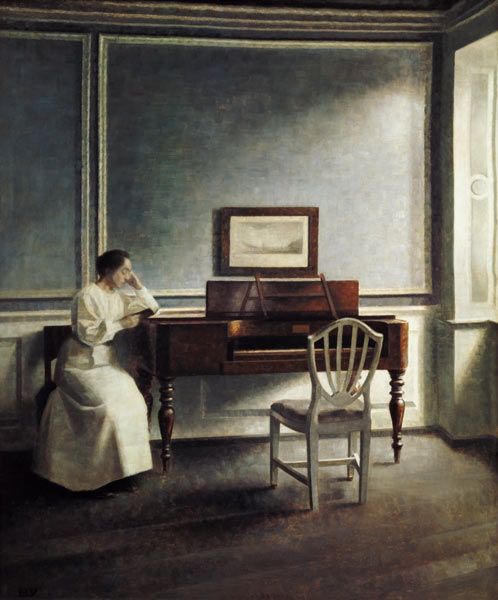
The word signifies a state of secrecy and privacy, disconnected from public affairs. When it comes to the use of modern words, "private" no longer has a derogatory meaning, but has independent and intimate meanings.
Arendt, and Richard Sannett on Arendt's shoulders, remind us of an all-important fact: the private and public spheres are both antithetical and supportive of each other. There is no public without private, and no private without public. "The two realms can exist only in the form of coexistence." In other words, we are only in this place when we have a private place that cannot be penetrated by other people's eyes. Only by having a place in the world, a place of its own, can it enter the public sphere on an equal footing and discuss social affairs on an equal footing with other citizens.
"It is shallow to live a life that is completely open and under the watchful eyes of others." In the new era of the Internet, the preciousness and importance of the private sphere have become more and more prominent - it is by no means less necessary than the public sphere. Because of the influence of smartphones and dataism, each of us inhabitants of the digital world can feel a "private life" passing - we no longer seem to have a reliable hiding place to escape and hide, but are The urge to go online and connect with others is a powerful desire, demand, and need that intrudes on everyday life.
The decline of the private sphere is also reflected in the issue of data privacy. New technologies allow our personal consumption, travel, location, and identity data to be tracked and collected all the time. The fragile and thin walls of the physical world cannot resist the piercing of a pair of cyber visions. If the essence of the private sphere lies in the deprivation of public life, then even this "state of deprivation" has been deprived.
2. The private realm is where we dream
Jean-Paul Sartre's character in the play Huis Clos said: "The other is hell!" This popular and widely misunderstood exclamation refers to Under the gaze, the "I" as the subject becomes the "I" as the object. The presence of the Other, the enslavement of its gaze, deprives the individual of his freedom.
A complete person needs to rest in the real darkness every once in a while, and needs to enter a state of idleness and fantasies from time to time, otherwise it will be easily conquered by the endless boredom and exhaustion of modern society. More importantly, for creators, without such a good private field, without a state of idleness and fantasies, there will be no good conditions for creation.
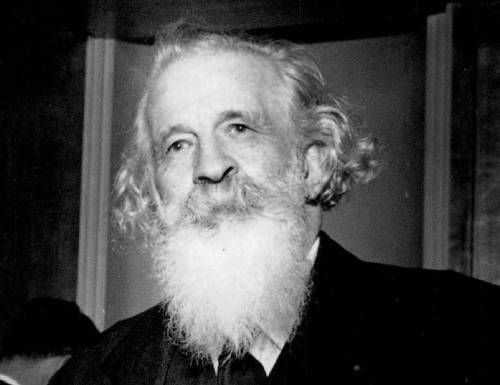
From an etymological examination, we can see that the private sphere represents escape, shelter, concealment, and concealment . Gaston Bachelard, in The Poetics of Space, gives a more specific meaning to the word "shelter": "The house shelters the daydream and protects the dreamer." (If there is a place that shelters daydreaming and protects its dreamer, it is home...)”
The public sphere promotes rationality and dialectics, where there is political negotiation and cultural discussion. But the place where we dream is always in the private realm. Through this, we may also be able to explain the great threat to fictional works today. If creation is heading for the loss of the whole, then fictional works are hit earlier and more seriously than non-fictional works of realism.
Twenty years ago, a lot of the words at the beginning of the movie were written: "If there is any similarity, it is purely a coincidence", but in recent years, we have seen more of this line becoming: "The story is adapted from real events". Movies that used to be sci-fi and fantasy have sparked public discussions, but now, more and more discussions are sparked by documentaries that focus on current affairs. Novels are becoming less and less popular—there are still students in universities who love to read, but books on history, society, and politics are more popular; even if you read novels, people are more willing to read the classics of the last century, and the new ones It is increasingly difficult for the market to accept fictional works of . We might be able to cut into the phenomenon from this perspective: fiction embodies a creator's ability to dream, but now that the private sphere is dead, there are fewer and fewer places for us to dream. Likewise, we no longer have the luxury of reading about other people's good dreams.
3. The private sphere holds our "dirt of thought"
Regarding the necessity of the private sphere for creation, there is another point of view that may be controversial - the private sphere can "hide the dirt" . It is precisely because this place provides good enough concealment and shelter that we are free from the scrutiny of others and the judgment of others. In this place, the universal moral codes and behavioral norms of society do not work. Dostoevsky created the classic image of the "basement man" in "Notes from the Basement"-because the long-term expectation is that no one can see the underground, the mind of the "basement man" is full of maddened delirium False speech, full of perverse, perverted, twisted, guilty thoughts, seems to be the culmination of a private state.
There is something in everyone's memory that cannot be made public, but only to friends. There are also some things that cannot be disclosed even to friends, but only to oneself, and only in secret. In the end, however, there are some things that are even afraid to disclose to oneself, and such things have a considerable accumulation in every decent person. It might even be said that the more decent a person is, the more such things are.
——Fyodor Dostoevsky's "Notes from the Basement", Chapter 1, Section 11, Chinese translation of Zeng Siyi
These "ideological dirt" that cannot be accommodated in the public realm are evoked in the bottom of the heart by the individual as a private person in the dead of night where no one is watching. When terrifying thoughts emerge for no reason, a person will be very frightened, and then try to suppress them. If the great works of human history visit the deepest parts of the human soul, we also need to admit that the deepest parts of these souls may be chasms that social contracts, moral codes and norms of behavior cannot see. When the private sphere becomes more and more public, the creators have no time or creation to face these chasms, and the works no longer carry this profound struggle and pain.
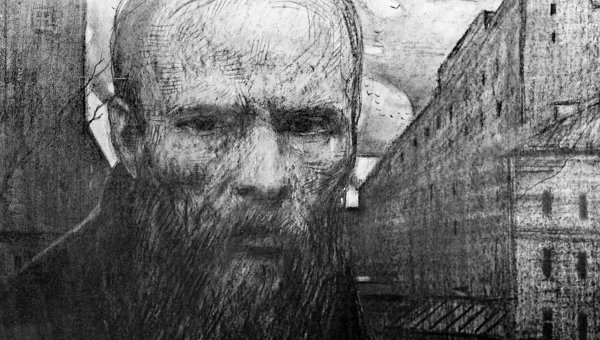
The disappearance of "ideological dirt" is also reflected in "everything is right". The evaluation of creation is more and more concerned with moral rationality and appropriate behavior, and does not care about the resonance of the soul brought about by the work itself (this shock may be brought about by "extraordinary"). Reading is no longer a private matter, but many readers gather together, draw out red pens, take out forms, and judge one by one how many moral requirements of modern society have been met by the author. This publicization of the private sphere indeed promotes equality and justice in the creative circle, but it also makes the content uniform.
On the one hand, the private sphere is being made public, and on the other hand, the public sphere is being privatized —this is also Jurgen Habermas’s reflection on the mass society and the media society. In his speech on "Public Space and Political Public Sphere", he mentioned that when the public sphere is used as a display stage, in order to attract attention, celebrities often mix their private and public lives. For example, we know the name of Aristotle, because his thoughts, opinions and works are important and classic, and can be left for future generations to ponder; but the exciting stories of his private life rarely appear in the classroom. . In the media society, public figures are known by their works, but their private life has gradually entered the public's field of vision. If we extend our sight to the Internet society here, then public figures may not even have works, nor do they need works, but talking about their private life is enough to gain the publicity of constantly "occupying public resources".
09 The private and public spheres are declining at the same time
On the one hand, the creation is unprecedentedly diverse and numerous, and on the other hand, the "great works" are rapidly lost; just as on the one hand, connection and communication have never been as efficient and convenient as they are now, but on the other hand, the discussion on the Internet is like this. Failure, the estrangement is so difficult to eliminate. This contradictory situation reminds us that the private and public spheres are in joint decline. The boundary between them becomes blurred and the connotation becomes broken.
A year ago, in "The Death of 'Discussion' in the Chinese Internet" (click to jump) , we tried to demonstrate the low quality of discussions in the digital space, and also analyzed the incompleteness of the digital public sphere through comment areas and message boards— In other words, it only has its name, not its reality. The Internet provides an unprecedentedly convenient public domain, but it is not always an effective public domain. Just like in real life, many parks and squares are nominally open to the public 24 hours a day, and people can enter at any time without extra charge, but here, it is not allowed to post signs, pull banners, give speeches, open discussions, and rallies Sit-in - then it can be said that this square may still be regarded as a "public space" in the sense of architecture and urban planning, but it cannot be regarded as a "public sphere" in the sense of political science, because it does not allow the publication of effective language, and is not independent of Outside the family and the country, it is not a place where people spontaneously come together to recognize, discuss, and solve common and pressing social problems.
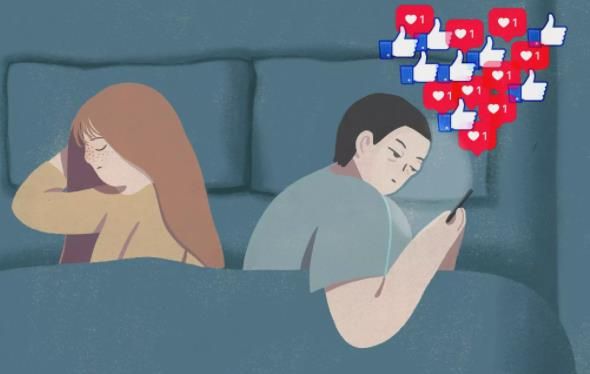
The private sphere also has only its name, not its reality. We still have our apartments and bedrooms, but the physical space is no longer dark, but constantly illuminated by the internet. This place was supposed to be free from the gaze of others, from the surveillance of any agency, but now, the space that was supposed to be inside, a cave or a cavity, was no longer free from these dataist conquests.
For creators, a good private sphere would have guaranteed the mind the freedom to imagine, dream, and contemplate. This is a place where he can face himself and his work alone, just as Thomas Mann describes in his essay "Heavy Moments", suddenly excited, then into heavy self-doubt, but constantly for the better The creation of a lonely struggle. But today, such time and space are unsustainable. Under the banner of dataism, social media platforms have launched a violent colonization of daily life, and the data capture of technology companies has invaded the daily life, health, and travel of individual users. wait for all data. People are turned upside down and exposed to the observation and scrutiny of technology continuously with little dignity. The private sphere collapsed, a sanctuary that was supposed to be protective was run over by the wheels of dataism.
In fact, the disappearance of the border between the private and public spheres is not a new topic. For many thinkers, the rise of modernization and mass society has already predestined this spatial chaos. This is a common sense of disorientation among modern people: there is neither a completely safe and undisturbed place to rest in peace, nor a truly public realm that can effectively intervene in politics, we are only in a mixed area with no clear boundaries. Floating, levitating, not knowing where to end, not knowing how to position myself. There is no good life, no complete life, let alone good creation.
10 Data itself is not the enemy of creation
Humans are migrating towards the digital world. This process started more than 20 years ago, and now it has entered a faster and faster acceleration process. There is no doubt that creators are one of them. But what we need to realize is that this is not just a technologically neutral process, and the change of space also profoundly affects the content creation itself. The value system promoted by "Dataism" guides the behavior of a new generation of Internet creators - the value of content is measured by "contribution to data processing". In this case, the creation presents a profound loss of quality and depth under the appearance of prosperity of magnitude.
For a long time, creators have been trying to find a balance between "understanding" and "understanding": on the one hand, they are called by a higher thing ("truth"/"beauty"/"justice") ...), I hope to get close to it through the process of creation; on the one hand, I am also attracted by publicity, hoping to achieve a state of being understood and recognized by the public. This push-pull and balance ensures that the creation is not overly flattering or overly egoistic. However, the emergence of dataism has broken this balance. In a cybernetic system, most creators rushed to the "understood" side without thinking, pouring their energy and intelligence into the maximum of data. on.
Most Internet creations have become cultural fast food that can be quickly consumed and recycled, only to quench the thirst for temporary attention and meet the needs of temporary discussion. In this way, it is also easy to create works that only seek to be "understood". For it is far more difficult and painful to "understand" both technically and mentally - that higher thing can only be approached, not finally reached. Considering in the data market, "understanding" is also thankless, because it does not directly stimulate the amount of data that can be realized. In the creation of the Internet age, profound struggle and inner confrontation have become rare.
Spatially, the demise of the private sphere is a crux of the matter. Because they are not watched and judged by others, creators can enjoy the freedom to dream, and they can also face their own strange, pathological and even sinful thoughts. It is this "darkness" that ensures the richness and porosity of the spiritual connotation of the work. But under the influence of the Internet, this place has accelerated to collapse, data privacy has been invoked, and the screen world has continued to attract and require creators to go online. With the common decline of the public and private spheres, creation has no room for "dream" and is also limited by a narrow "correctness".
But it needs to be mentioned that in the article, we analyzed that dataism makes the creative process unbalanced, and it is difficult to produce great works. But this view does not imply that the data itself is in opposition to the work. If the work is not out of balance in the self-control of the creator, data can also be a creative aid. Because of the convenience and breadth of data, creators can have a more complete and figurative understanding of the world, and can gain access to many perspectives and creative techniques that were not available before. The new media art field has produced some artworks that have never been seen before in the Internet age. The game called "Ninth Art" must also be created through data. When these resources are put to good use, the creators also build a sense of immersion and interaction strength that the predecessors could not achieve.
Another question worth pondering is that our article evaluates the creative behavior and the quality of content in the current era of dataism by reviewing the great works of the classics. Spatially, we still want to recreate the necessary boundaries between private and public. But if technology develops by leaps and bounds under dataism, when our consciousness can be fully online, and the senses and thoughts between different human individuals can be directly shared "online", then at this time, creation and great works themselves also need to be redefine . But a whole new set of definitions may be hard to predict at the moment. And if we want to find a constant clue between looking to the future and looking to the past, then "understanding" and expressing the common feelings and struggles deep in the human soul will probably still be a constant greatness feature.
(End of full text)
(Welcome to follow the WeChat public account "Dune Research Institute", the first-hand content will be updated here. If you are interested in design and architecture study, please follow the WeChat public account "Open Land Laboratory".)
Like my work? Don't forget to support and clap, let me know that you are with me on the road of creation. Keep this enthusiasm together!





- Author
- More